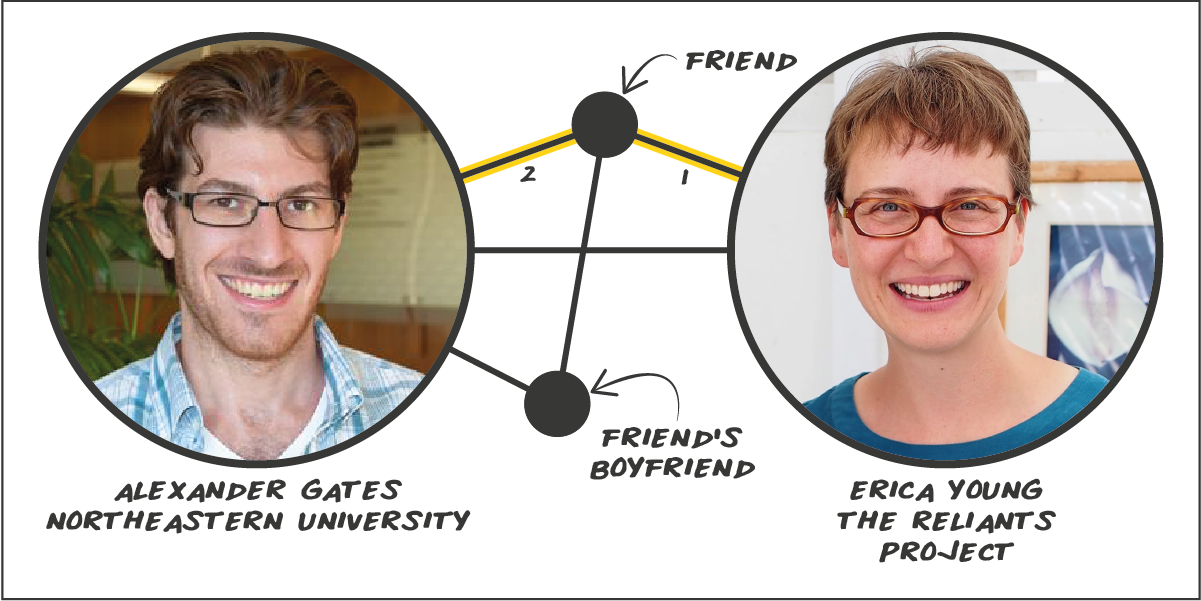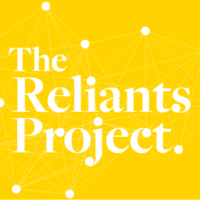
Podcast: Play in new window | Download
Alexander Gates is a post-doctoral research associate at The Center for Complex Network Research at Northeastern University, also known as the Barabasi Lab. His research is focused on the science of success and the dynamics of academic careers.
Request an introduction to Alex from Erica
In this episode we:
- Discuss how you can apply the ‘science of success’ to further your career
- Learn about the random impact rule and why it’s possible to be successful later in life
- Talk about easy practical steps each of us can take to improve our own network
KEY NETWORK SCIENCE CONCEPTS
SHOW NOTES
- What did Alex’s grandfather teach him about networks? And how did Alex become interested in them while searching for a job? [2:20]
- What is the science of success? [3:44]
- How is the science of success applied to scientific careers? [5:31]
- What’s the value of the Citation Network and why does it help us to better understand the key elements of success? [6:35]
- What is the Co-Citation Network and how did it help to examine and clarify the concept of scientific disciplines? [7:40]
- Alexander chose to analyse networks in science specifically because of the wealth of data and his identity as a scientist – but how can his findings better inform other kinds of networks? What are some examples of subjects that this can be applied to? [9:25]
- When performance can’t be measured, networks drive success. How do biases, as a context, help to form the web between the different elements of a network? [11:00]
- Why is this research important in the work of philanthropy and justice? [12:55]
- Alexander details the random impact rule and personal revelations in how volume and consistency are a proxy for success. What is some tangible advice we can take from this to steer our networks towards success? [14:50]
- When studying success in social behaviour data sets, gender always comes out as a major differentiation point. Why does this gap exist, how is this a problem, and what gives Alexander hope for the future in gender representation? [17:14]
- Why is it a challenge for so many to think about things in terms of networks? How can visual aids help improve people’s understanding and how can they sometimes be used in a misleading manner? [21:08]
- Alexander discusses the importance of weak ties, strong ties, and how not all ties are equal under the theory of preferential attachment (or, the rich get richer effect). What are ways that we can counterbalance preferential attachment by focusing on diversity in collaboration? Why is this diversifying a team such a powerful networking tool? [24:41]
- Bluebox: Erica explains the principles behind the Science of Success including growth and the idea of preferential attachment [28:17]
- Alexander’s research in networks has played a major role in his personal and professional life. How do personal networks influence what we like, what we do, and how we build friendships? [31:57]
- Why are some of the best people to meet are your friends’ friends [33:13]
- Why is it important, for the strength of a network, to meet random new people regularly? [34:12]
- Closing statements [35:30]
SELECTED LINKS FROM EPISODE
Connect to Alexander Gates – Website | LinkedIn | Research
- The Science of Science
- Theory of Adjacent Possible
- Choice Architecture
- Nudge Theory
- Preferential Attachment
- The Random Impact Rule
- Barabási Lab, Network Science Institute, Northwestern University
PEOPLE MENTIONED
